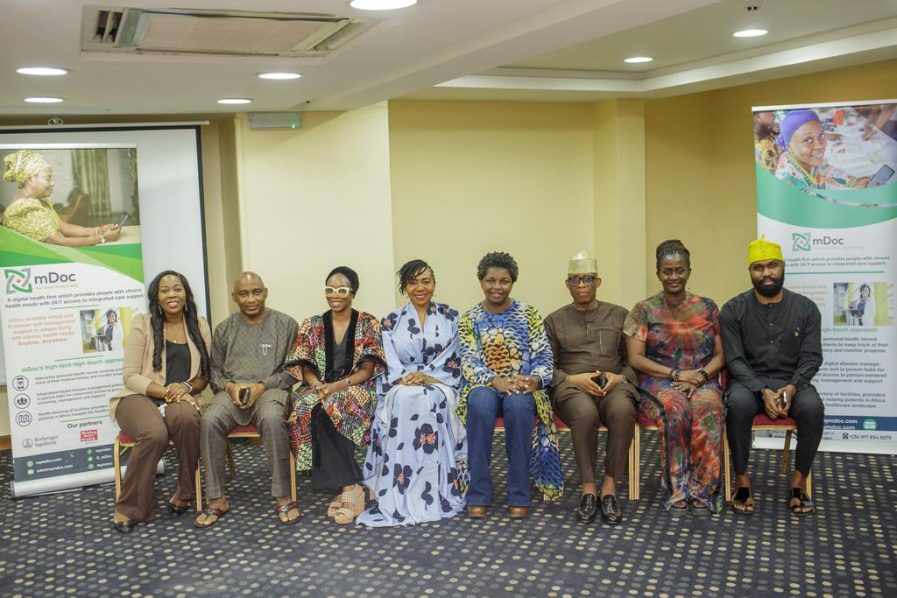
On November 10, 2023, the Lagos State Ministry of Health, in collaboration with mDoc Healthcare, with support from MSD for Mothers, launched The Digital Mom Project, a scalable whole system quality model aimed at digitally enabling and empowering women in Nigeria to enhance their maternal health outcomes and access to comprehensive healthcare. With a focus on low to middle-income women, in Lagos and Ekiti States, the project aims to improve maternal health outcomes such as blood pressure and blood glucose metrics by 20%. This project is supported by funding from MSD, through MSD for Mothers, the company’s global initiative to help create a world where no woman has to die while giving life.
Speaking at the event, Dr. Victoria Omoera, the Reproductive Health Coordinator for the Lagos State Ministry of Health, shed light on the pivotal role of the Digital Mom project in enhancing maternal health in the state.
“Maternal health for us is very important when a woman decides she wants to have a baby and gets pregnant. And the onus is on us to ensure that she has access to quality antenatal and postnatal care and delivers in a facility that has a better tendon to ensure that there’s a healthy outcome for the mother and the baby,” Dr. Omoera stated.
The project, according to Dr. Omoera, harnesses the power of the digital space to expand the knowledge base for pregnant women. Omoera explained that the digital platform serves as a hub where women can manage various conditions with the support of healthcare professionals and enables them to seek additional assistance from the comfort of their homes, fostering a sense of community and solidarity among pregnant women.
Ota Akhigne, a representative from the Private Sector Health Alliance of Nigeria (PSHAN), commended the initiative, noting that PSHAN’s involvement in the Digital Mom project serves as a platform that integrates funding, expertise, and resources from the private sector to optimize healthcare facilities.
According to her, PSHAN’s pivotal role is to bring together its platform, members, and partners to leverage resources, especially through its doctor healthcare facility programme to provide key resources to facilities to help optimize quality care delivery.
Akhigne also noted the importance of this partnership in empowering women, stating, “This project is focused on empowering women using digital services. With this partnership, we can leverage our primary healthcare centers for low income women, targeting the vulnerable population, mainly women and children.”
Meanwhile, Iyadunni Olubode, the Nigerian Director for MSD for Mothers, stated that the organisation, in collaboration with mDoc, aims to make significant strides in maternal healthcare in Nigeria by utilising data-driven and technology-enabled strategies and a commitment to continuously improving their approach based on real-world feedback from women.
MSD for Mothers, an initiative by pharmaceutical giant MSD, has been at the forefront of leveraging data to understand the unique healthcare challenges faced by women in Nigeria. Olubode stressed that comprehensive data collection is instrumental in not only identifying challenges but also in designing and adapting solutions that resonate with the needs and experiences of the women involved.
“Data collection for health is critical because it helps us to understand, first of all, what the challenges are. One of the things that we encounter is understanding women’s healthcare experiences and the challenges they are facing. This data helps us define a solution that works,”






